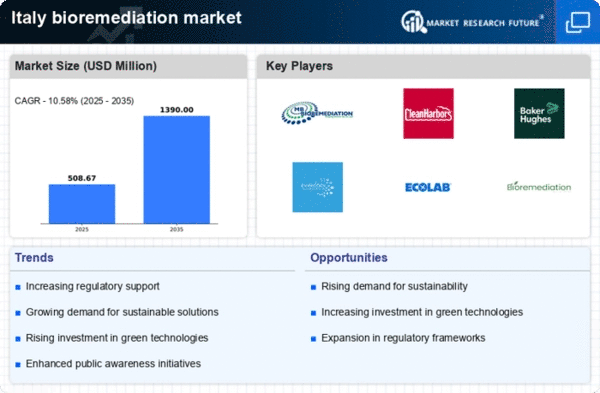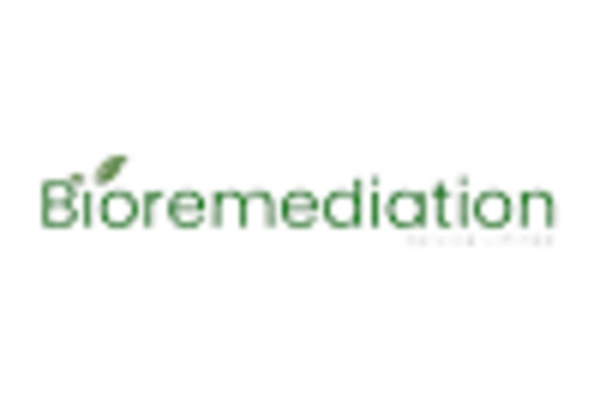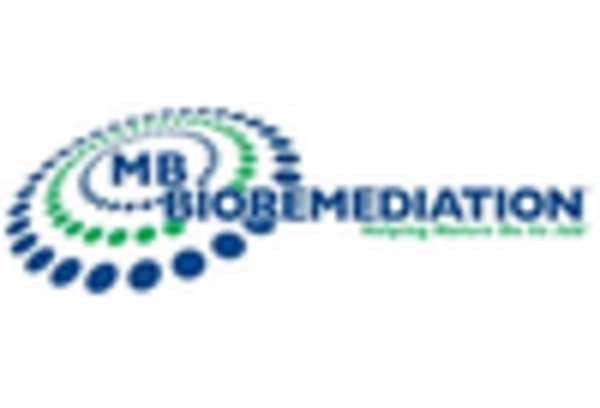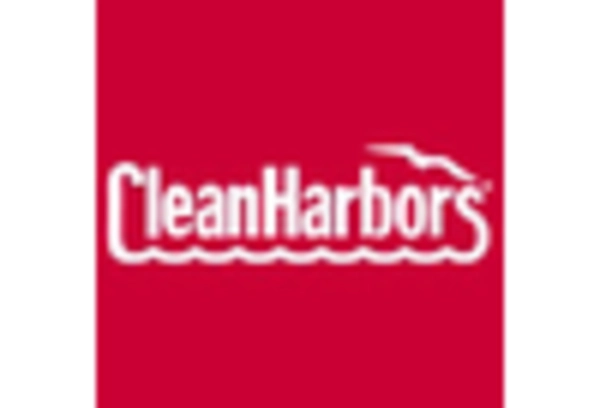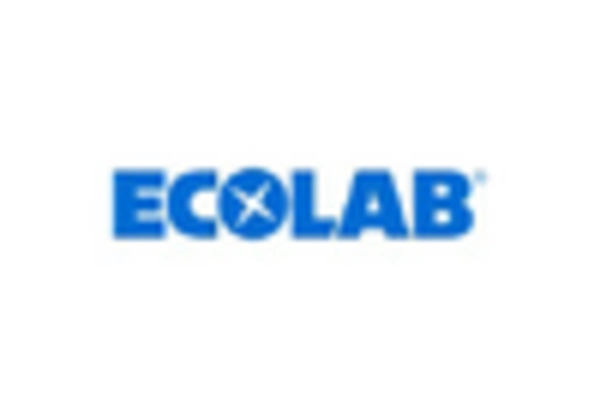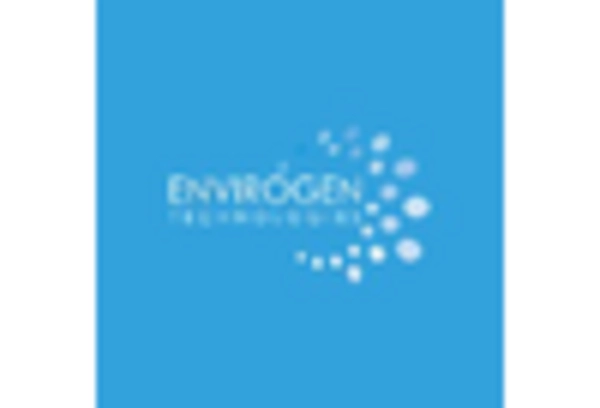Public Health Concerns
Growing public health concerns related to contaminated sites are influencing the bioremediation market in Italy. The awareness of the health risks associated with soil and water pollution has led to increased demand for remediation solutions. Communities are advocating for cleaner environments, prompting local governments to prioritize bioremediation projects. In 2025, it is projected that investments in bioremediation initiatives could reach €200 million, reflecting the urgency to address public health issues linked to environmental contamination. This heightened focus on health and safety is likely to drive the adoption of bioremediation technologies, as stakeholders seek to mitigate risks and enhance community well-being.
Industrial Waste Management Needs
Italy's industrial sector generates substantial amounts of waste, necessitating effective waste management solutions. The bioremediation market is poised to benefit from the increasing demand for sustainable waste treatment methods. Industries such as manufacturing, textiles, and chemicals are under pressure to minimize their environmental footprint. In 2025, it is estimated that the bioremediation market could capture approximately 15% of the total waste management sector in Italy. This shift towards bioremediation is driven by the need for cost-effective and environmentally friendly alternatives to traditional waste disposal methods. As companies strive to improve their sustainability practices, the adoption of bioremediation technologies is likely to rise, further propelling market growth.
Environmental Legislation Compliance
The stringent environmental regulations in Italy are driving the bioremediation market. The Italian government has implemented various laws aimed at reducing pollution and restoring contaminated sites. Compliance with these regulations often necessitates the use of bioremediation techniques, which are seen as effective and sustainable solutions. As of 2025, the market is projected to grow at a CAGR of 8.5%, largely due to the increasing need for industries to adhere to these environmental standards. Companies are investing in bioremediation technologies to avoid hefty fines and enhance their corporate social responsibility profiles. This regulatory landscape is likely to continue influencing the bioremediation market positively, as businesses seek to align their operations with national and EU environmental goals.
Research and Development Initiatives
Ongoing research and development initiatives in Italy are fostering innovation within the bioremediation market. Academic institutions and private companies are collaborating to develop advanced bioremediation techniques that are more efficient and cost-effective. This focus on R&D is expected to yield new bioremediation products and services, enhancing the overall market landscape. As of 2025, it is anticipated that R&D investments in bioremediation could exceed €50 million, indicating a strong commitment to advancing this field. The outcomes of these initiatives may lead to improved bioremediation solutions that can address a wider range of contaminants, thereby expanding the market's potential.
Economic Incentives for Sustainable Practices
Economic incentives provided by the Italian government are encouraging businesses to adopt bioremediation practices. Financial support, such as grants and tax breaks, is available for companies that implement environmentally friendly technologies. This financial backing is likely to stimulate growth in the bioremediation market, as businesses seek to capitalize on these opportunities. In 2025, it is estimated that the market could grow by 10% due to these economic incentives. By reducing the financial burden associated with remediation efforts, the government is effectively promoting the adoption of bioremediation solutions, which may lead to a more sustainable industrial landscape in Italy.


